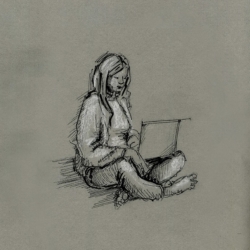July 19, 2024
Increase in social media use and ‘doomscrolling’ could affect mental health and productivity in Gen-Z workers
 Nuffield Health’s 2024 ‘Healthier Nation Index’ – a survey of 8,000 UK adults has highlighted how the young workforce is more social media obsessed than ever before. The study claims that social media use has increased for Gen-Z, with 16-24-year-olds spending over two hours a day doomscrolling on social media apps like TikTok, Instagram and Facebook per day (129 minutes), which is a seven percent increase and nearly ten minutes more a day than they were last year (119 minutes). This is four times the daily recommended amount for improved wellbeing. (more…)
Nuffield Health’s 2024 ‘Healthier Nation Index’ – a survey of 8,000 UK adults has highlighted how the young workforce is more social media obsessed than ever before. The study claims that social media use has increased for Gen-Z, with 16-24-year-olds spending over two hours a day doomscrolling on social media apps like TikTok, Instagram and Facebook per day (129 minutes), which is a seven percent increase and nearly ten minutes more a day than they were last year (119 minutes). This is four times the daily recommended amount for improved wellbeing. (more…)













 New research from
New research from 



















July 19, 2024
Book review: Workspace Made Easy
by Mark Eltringham • Comment, Facilities management, Property, Workplace design